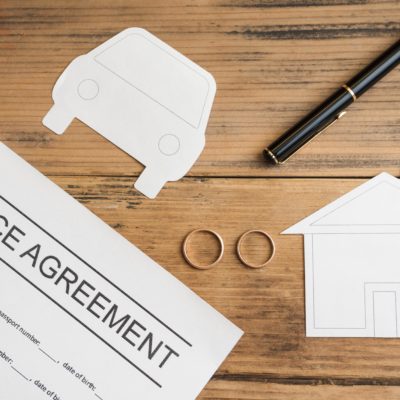What happens to debt when you divorce?
Very few couples go through life without incurring some form of debt, whether to finance a car, buy a home or cover other large costs that can arise in everyday life. But what happens to these debts when you separate or divorce? In this article we will cover the key topics you’ll need to consider when sorting out your debts during a divorce.
How is debt divided following a divorce?
First, you’ll need to establish which debts you are both responsible for, and which are the sole responsibility of one party. To do this it is essential that it is established why the debt was incurred and whether it is likely to be considered a ‘matrimonial debt’ or an ‘individual debt’.
Matrimonial debt
Matrimonial debts are typically those incurred from costs which benefit the family/couple rather than one person. Common examples of this type of debt might include funding a mortgage, home improvements, a car, or a joint/family holiday.
Loans taken out in the name of only one spouse will normally be deemed to be their sole responsibility by the lender, but not necessarily by the Court.
Individual debt
If one spouse has incurred debt on their own and has been the only person to benefit, then this debt will normally be classed as an individual debt and will therefore be excluded from the calculation of the matrimonial assets.
Debts deemed to be individual debts might include those incurred through funding expensive hobbies, self-indulgent expenses or gambling debts. It can, however, prove difficult to establish the true nature of debts and prove financial responsibility to repay them.
The Court will consider whether a debt was incurred prior to or during the marriage. If one party is found to have brought significant debts to the marriage which were incurred before the marriage then it would be more likely that these would be considered individual debts, whereas if the debts were incurred during the marriage they are more likely to be considered joint debts.
The length of time that the couple have been married is also likely to have an impact on any decision, as the reason for the debt becomes less important as time passes and debts incurred prior to the marriage may, over time, come to be seen as part of the joint financial situation.
Who is responsible for credit card debts and car loans?
Essentially it will depend on whose name the credit card or loan is in. If a credit card or loan is taken out only in one spouse’s name then the other spouse will not be liable to the lender for them.
However, if it can be shown that the loans were taken out for a joint purpose the Courts may consider them to be a joint debt and still take them into account when considering a financial order.
What to do if your ex-partner incurred more debt after separation?
Often, there is a period of time over which a married couple will have separated before the official divorce is applied for, during which it is possible for either or both spouses to incur significant debt. If this is incurred prior to a financial consent order being issued by the Court it is likely to be factored into the overall financial settlement.
However, the Court will consider why the debts have been incurred and will use their discretion as to whether and/or to what extent they should be included.
How to prevent future disputes after separation
It is vital to obtain a court-approved financial order to ensure that debts are accurately taken into account in any financial agreement as this will prevent disputes from arising moving forward.
If there are no joint debts remaining after the divorce has been finalised, it is possible to ask credit reference agencies to place a ‘notice of disassociation’ on your credit report which will remove any previous association between credit files to prevent any impact of your ex-spouse’s loans on your credit applications in the future.
How can Ratcliffes help?
At Ratcliffes, we understand that even the most amicable divorces can be stressful and costly, which is why it is so important to have the right legal advice to help the divorce process to run as smoothly as possible.
It is not uncommon for issues to arise once paperwork is required to finalise the divorce and you may require support to get this paperwork through the Court. At Ratcliffes, we can guide you through the divorce process with care and expertise and make it as stress free as possible.
To arrange a Fixed Fee appointment to see what we can do to help you call us on 01795 477505 or contact us online.


